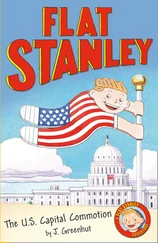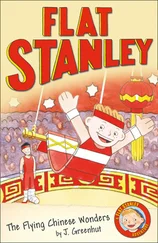Hunt down David Wright or whatever the little shit was really called.
‘Foreigners will come to Moscow, walk around, and find no skyscrapers…’ As the Great Patriotic War came to a close, Stalin fretted that Moscow was not sufficiently grand for the capital of a victorious world power. His response was to order the construction of the Seven Sisters, huge tower blocks known locally as Stalinskie Vysotki.
The Kotelnicheskaya Embankment Building, built as elite flats but re-designated as kommunalka , communal apartments, was the third highest. The Hotel Ukraina, until recently the world’s tallest hotel, was the second highest. Top of the list was Moscow State University at Lenin Hills.
The tallest building in Europe, it was unmissable and owed its position on Moscow’s south-west edge in equal parts to Stalin’s paranoia and historical common sense. He didn’t trust the intelligentsia, and Russian history recorded numerous student riots against tsarist policy when the university was in the centre.
What Tom’s Guide to Moscow didn’t mention was that Europe’s tallest building had been built by slaves from the gulags, several thousand of them, housed in the later stages on the twenty-fourth and twenty-fifth floors to reduce the chance of escape and avoid transportation costs.
Putting the guide away, and hoping he looked suitably academic in a scruffy tweed jacket with elbow patches, Tom tucked a fat hardback under his arm, swung a tatty briefcase he’d scrounged from a man in the embassy comms room and headed not for the main tower, which housed the lecture theatres, but for the furthest of the four wings flanking the tower.
Like the others, it housed students.
A deshurnaya at a desk looked up and Tom nodded sharply.
She might have stared after him but she didn’t call him back as he strode towards the stairs. He’d already decided not to use the lifts. If they were anything like the lift at Sadovaya Samotechnaya, he stood a good chance of getting stuck between floors.
A group of Russian boys heading down parted to let him through without noticing. They smelled of damp coats and bad aftershave. Their scarves were home-knitted, their boots stained to the ankle by yesterday’s snow. The strip lighting did nothing for their complexions, their clothes or their expressions.
The student cafeteria on the third floor stank of disinfectant and was spartan even by Soviet standards. Formica tables and moulded orange chairs filled an expanse of plastic tiles. The view over the Moskva was striking, though.
So striking that Tom stopped to admire the ice before heading for the counter, where he ordered a tea, dropping a few kopeks into the gloved hand of a babushka, and then chose a chair that let him watch students enter and leave. Someone had left an issue of Krokodil , which Tom discovered was a month out of date. He read it anyway.
Private Eye with worse cartoons and better jokes.
Factory management were mocked for their inability to deliver fridges that worked, enough cars to fill showrooms, clothes anybody might actually want to wear. What was most shocking about the shiny new amnesty for political prisoners was that everyone was so shocked. The old guard were dinosaurs, Gorbachev a breath of fresh air.
When it went for political targets, it went for those at a safe distance from Moscow. The head of police in Yakut was too drunk to capture a murderer who’d flayed a teenage boy upriver from Yakutsk, and another approaching Olyokminsk. It had to be obvious even to an idiot the perpetrator was making his way along the River Lena, probably looking for casual work. Tom suspected it wasn’t as simple as that.
He could tell the Western students. They moved in little shoals.
Half a dozen was their preferred number.
And while they might be as damp as the Russian students, their clothes were more expensive, they were better fed and their hair better cut. They mostly stuck to speaking Russian, but Spanish, French or German would creep in, the conversation flipping languages for a sentence or two. When a group of three boys and two girls broke into English, Tom wandered over.
‘Are you from the UK?’
‘Who’s asking?’
‘I am,’ Tom said.
A boy in a leather Lenin hat glanced away, then looked back and made himself hold Tom’s stare. He sucked his teeth theatrically. ‘So,’ he said, ‘what are we meant to have done this time?’
‘What did you do last time?’
One of the girls laughed. Late teens, maybe early twenties. The boy with the leather cap didn’t like that; his scowl said so.
‘Whatever it was,’ Tom told him, ‘I don’t care.’
The girl said, ‘You aren’t from the embassy?’
‘In a way…’ Tom slid his ID on to the table and took it back before they’d done much more than glance at it. When he had their attention, he sat.
‘Are we in trouble?’ the girl asked. She sounded Welsh.
‘Not yet,’ said Tom, passing Alex’s photograph across.
‘Pretty. Who is she?’
‘Someone who’s missing. You haven’t seen her?’
‘No,’ the Welsh girl said.
‘You sure? Her boyfriend studies here.’
‘Quite sure. I’m Siân,’ she added, as if this was something that needed to be said. ‘I thought I knew most of the girls from the UK. What’s she studying?’
‘She’s home for the holidays.’
‘From boarding school?’
Tom nodded.
‘Tacky.’
Tom glared at Lenin Cap.
‘Not her,’ he said hastily. ‘Whoever’s boffing her.’
Siân peered at the photograph carefully. ‘Upper sixth?’
‘Lower,’ Tom said.
‘Even tackier,’ the boy muttered.
‘What’s her boyfriend’s name?’ That was Siân again.
‘David Wright. I’m told he’s American.’
The friends glanced at each other. The other girl shook her head very slightly. A warning, Tom imagined. Unless she was simply suggesting they stay out of it.
‘Spit it out,’ Tom said.
Only the first girl met his eyes. She looked embarrassed.
‘Mr Right. Davie Wong. It’s a pun.’
‘And a play on Dr Jekyll and Mr Hyde?’ Tom asked.
She nodded gratefully. ‘He’s Canadian, not American, and I very much doubt he’s going out with… What was her name?’
‘Doesn’t matter. Where do I find him?’
‘I’ll take you.’
‘Siân…’ Lenin Cap said.
‘It’s okay. Davie knows me.’
‘Davie knows you?’ Tom asked, when they were on their way out.
He left the others convinced they’d got off lightly, without knowing for what. Moscow probably did that to you after a while.
‘The students halls are self-policing,’ she said. ‘Elected representatives, Komsomol committees. You know, the youth organization of the Communist Party. Every corridor has a deshurnaya , one of those old women who sit at a desk and spy on who comes and goes. Some of them have been here for ever. We should be okay. I know most of those in this block.’
Concrete stairs led to a swing door with a corridor beyond. A hard-faced woman looked up from a desk and barked a question when she saw Tom. It was Siân who answered. ‘I told her you were from the embassy.’
‘I speak Russian,’ Tom said.
He watched the girl assess that.
She knocked at a door and waited. There was a sound of scurrying and then silence, as if someone was pretending not to be there. ‘Davie,’ Siân said, ‘it’s okay. It’s me.’ Very slowly the door opened a little and a slim boy peered through.
‘Who’s that?’
‘He needs to talk to you.’
‘About Alex,’ Tom said.
The door opened as wide as its little chain would allow. ‘I haven’t seen her,’ a soft voice said. ‘She only came here twice. Now go away and leave me alone.’
Читать дальше
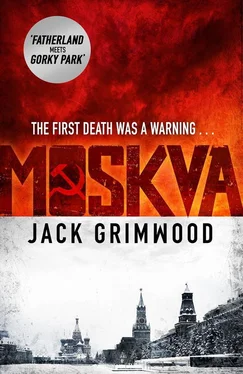

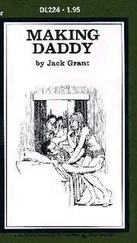



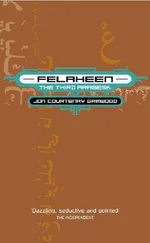

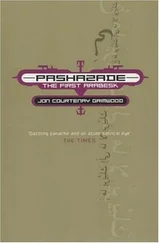
![Георгий Турьянский - MOSKVA–ФРАНКФУРТ–MOSKVA [Сборник рассказов 1996–2011]](/books/422895/georgij-turyanskij-moskva-frankfurt-moskva-sborni-thumb.webp)
